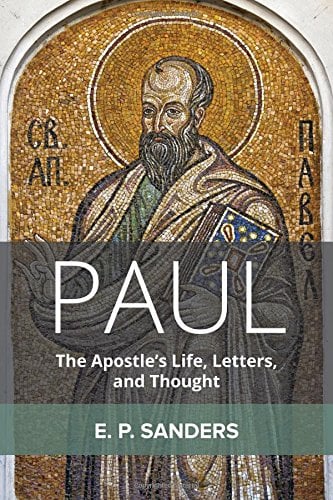p. 125 Chapter 3 is entitled Travel, Letters, People, Money
pp. 125—30— While traveling was arduous Paul managed it despite multiple shipwrecks. He probably used a pack animal to carry supplies, tools of the trade, luggage, when going on foot, covering from 12-15 miles a day, unlike soldiers who could cover 30. It is 200 miles from Ephesus to Philippi, another 250 by land from Philippi to Corinth. From Syrian Antioch to Troas is 900 miles or 60-75 days of walking, so 80-99 days from Antioch to Corinth 77-96 on foot and 3 days by ship, or over 3 months time. The point is a lot of travel was required for the spread of Christianity, and for the ongoing communication and mutual support between Paul and congregations and between congregations and other congregations— p. 131—“Everyone concerned, it is clear, took a good deal of effort to stay in touch, and this required, in one way or another, a lot of travel.” On this page n. 10 comments on whether Paul was imprisoned in Ephesus, without Sanders commiting himself one way or the other. He says the Ephesus theory goes back to Deissmann. (He says possibly in Ephesus on p. 142).
p. 133-34— Philemon and Romans 16 shows Paul the letter writer at his best. The Corinthian correspondence shows how Paul used both personal assistants and letters to communicate. He favors the view that 2 Cor. 10-13 was written before 2 Cor. 1-7 and that therefore there are multiple letters edited together in that document.
p. 137– Sanders seems to take Acts 19.1-7 to refer to the converts of Apollos, though the text says no such thing. It says they were disciples of John the Baptist before conversion by Paul.
p. 138—In his account of Paul’s various colleagues and coworkers he suggest Phoebe was probably a preacher and is called a deacon. He says we don’t know what city Erastus was the treasurer of [yes we do, and the mention of Phoebe in Cenchreae should have provided a clue, not to mention the Erastus inscription in Corinth].
Sanders notes on p. 139 that there is no evidence for the male name Junias.
p. 140—There were three women mentioned in Rom. 16 as leaders of the movement—Prisca, Junia, Phoebe. “Paul was part of a small explosion of energetic people who had been galvanized into activity by the death of resurrection of Jesus and the preaching of the first apostles.”
pp. 141–43– Sometimes Paul was impoverished (as 1 Cor. 4.11-13 and 2 Cor. 6.5, 11.27 show), sometimes he had plenty (Phil. 4.11-12). Sanders thinks that in general money was in short supply because it cost to travel, one had to by food, and all the travel time could not also be tentmaking time. He assumes that most of the money was supplied by his converts such as the Philippians. If he had independent wealth, he would not have experienced poverty in various times and places. He did not take money from the Corinthians (2 Cor. 11.7) but he admits to ‘robbing other churches by accepting their support’ (friends from Macedonia—2 Cor. 11.8-9).
Phoebe is clearly designated as his benefactor or patron in Rom. 16. It was the presence of some prosperous people in Paul’s churches that probably enabled him to travel to find housing to buy food etc. Prostatis doesn’t just mean helper, it means patron. Since Paul’s churches were few and far between he probably relied on patrons like Phoebe quite a lot to fund his travel and work. But clearly as 2 Cor 6 and 11 show, Paul ran out of money, experienced poverty and hunger etc.
p. 144— Sanders suggests that Paul not only learned tentmaking from presumably his family, he was trained for management, as is shown by his knowing how to use secretaries and dictate letters etc. This suggests a relatively middle class upbringing, which helps to explain the degree to which he felt his poverty and his previous prosperity. But in Paul’s letters we do not hear the voice of the lowest level of Greco-Roman society. [i.e. Paul was not an illiterate peasant or day laborer].
END OF PART ONE













